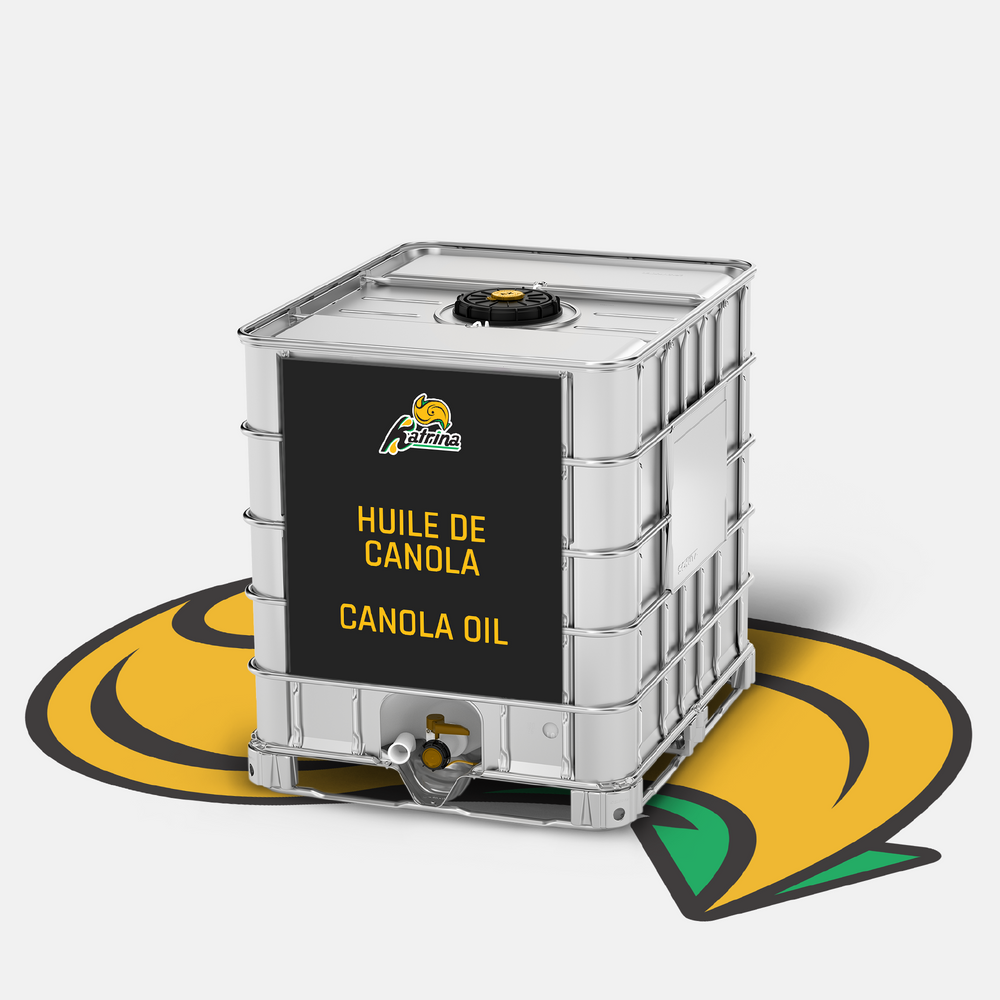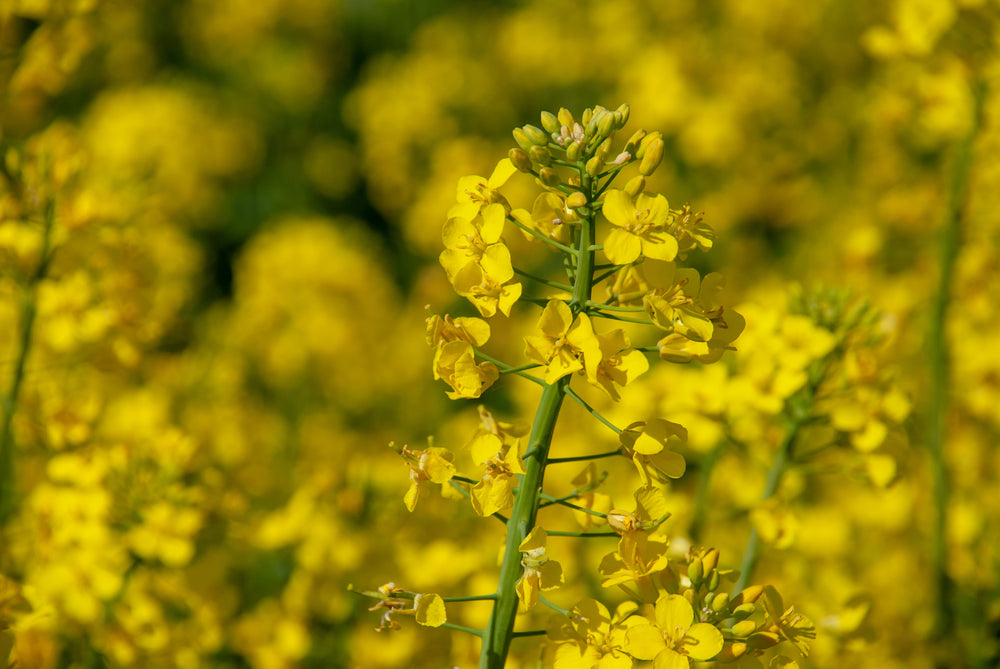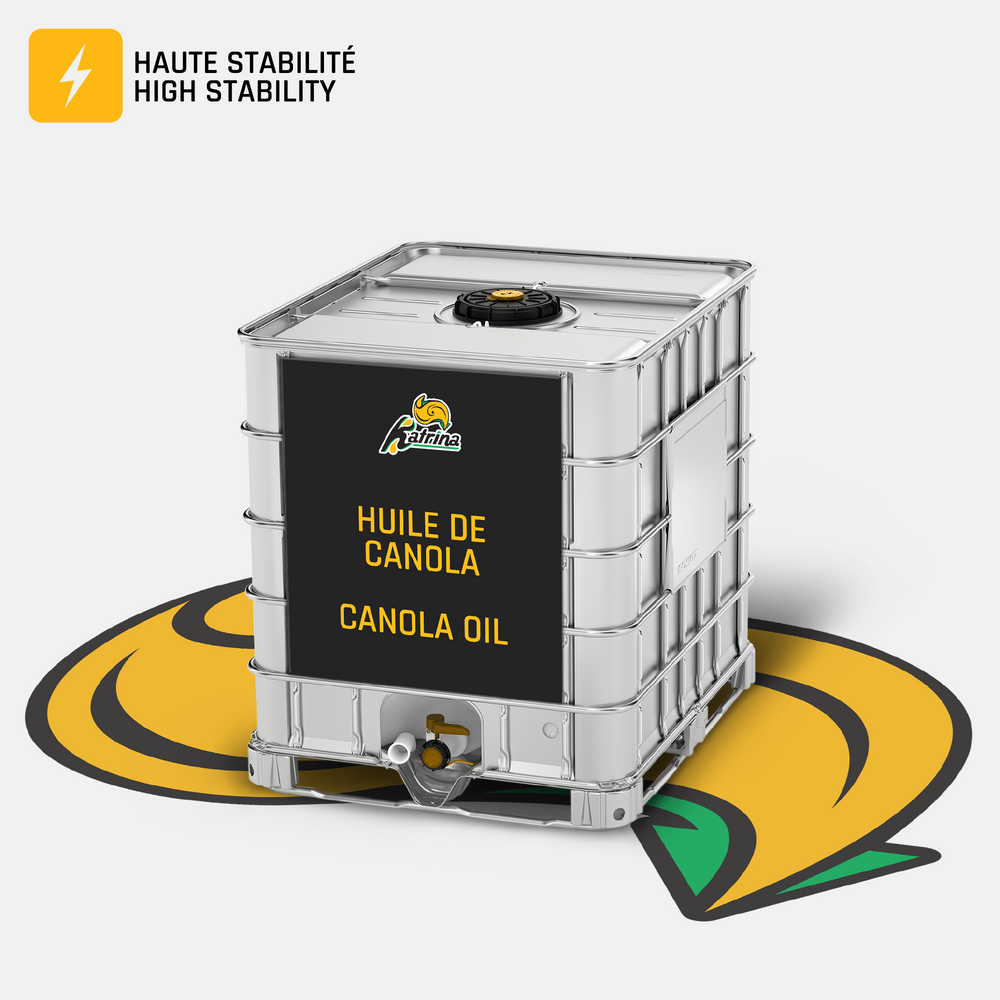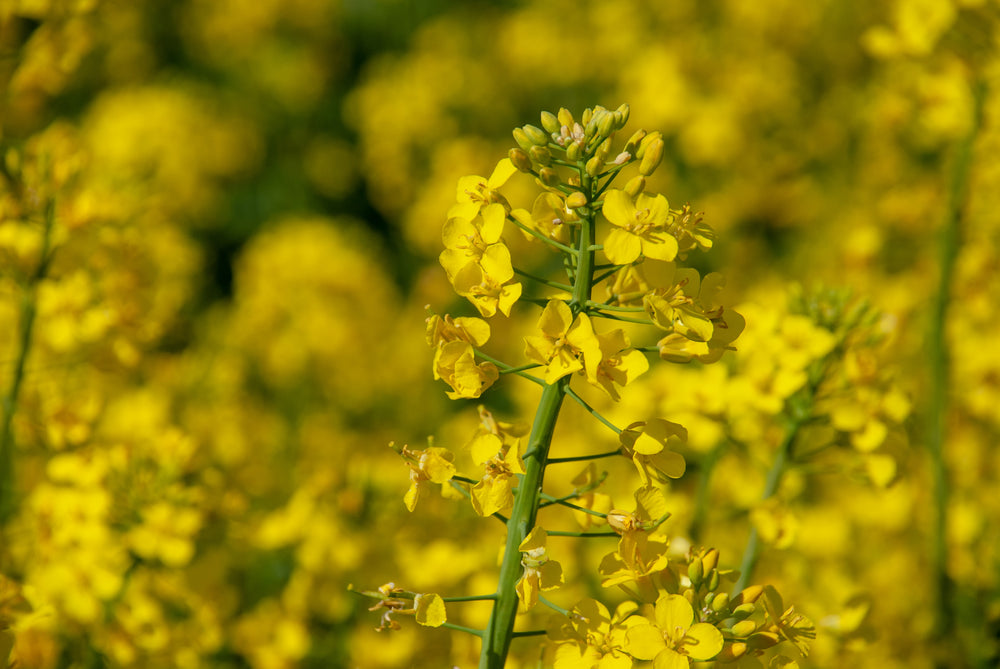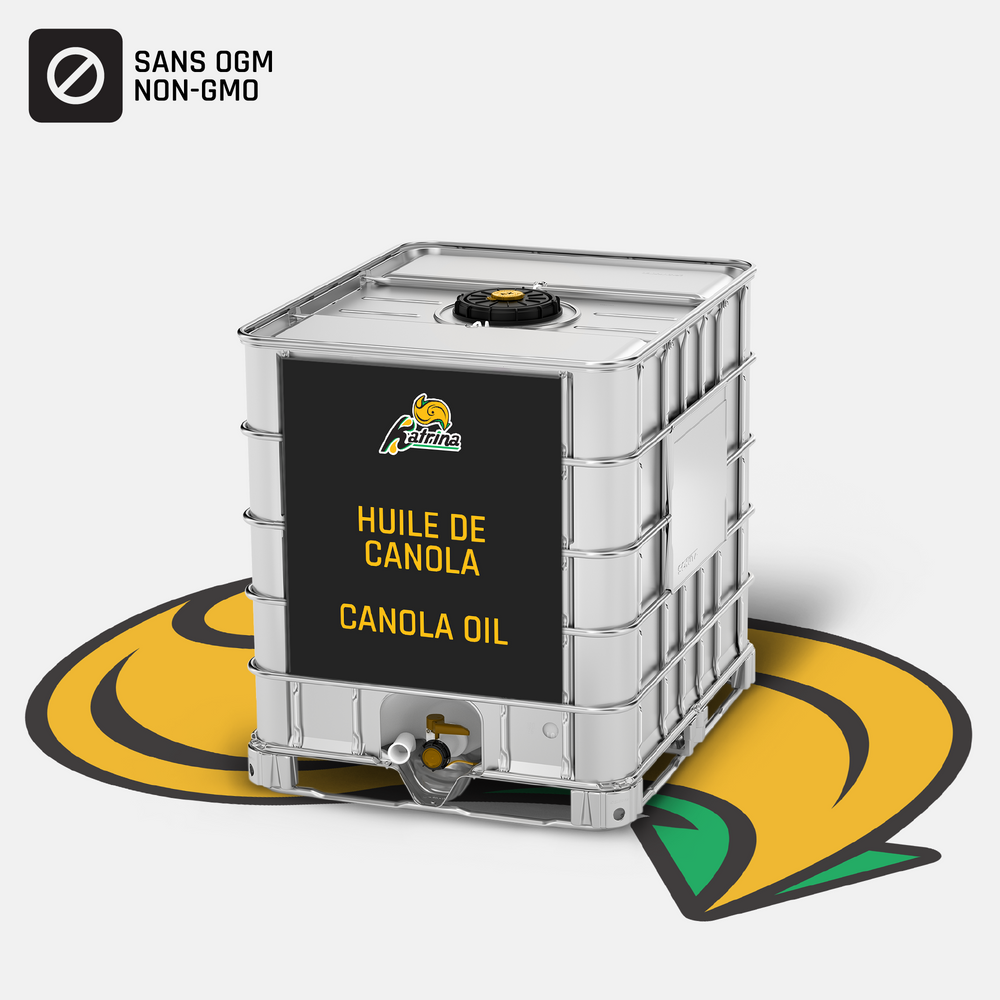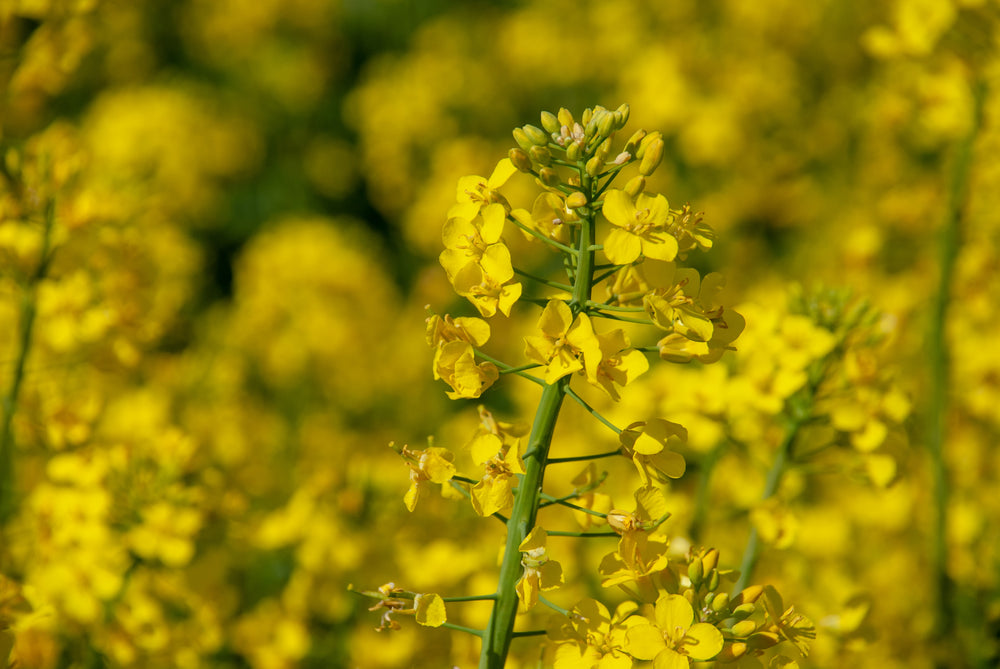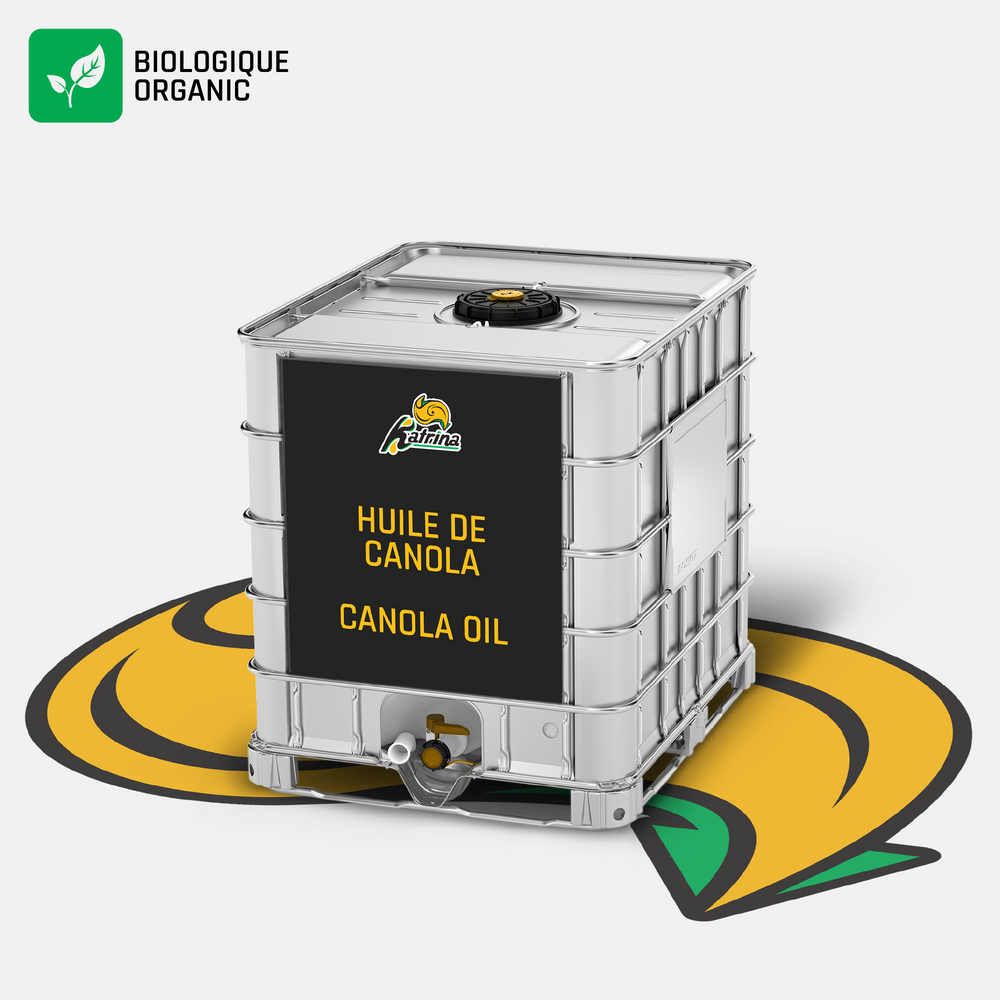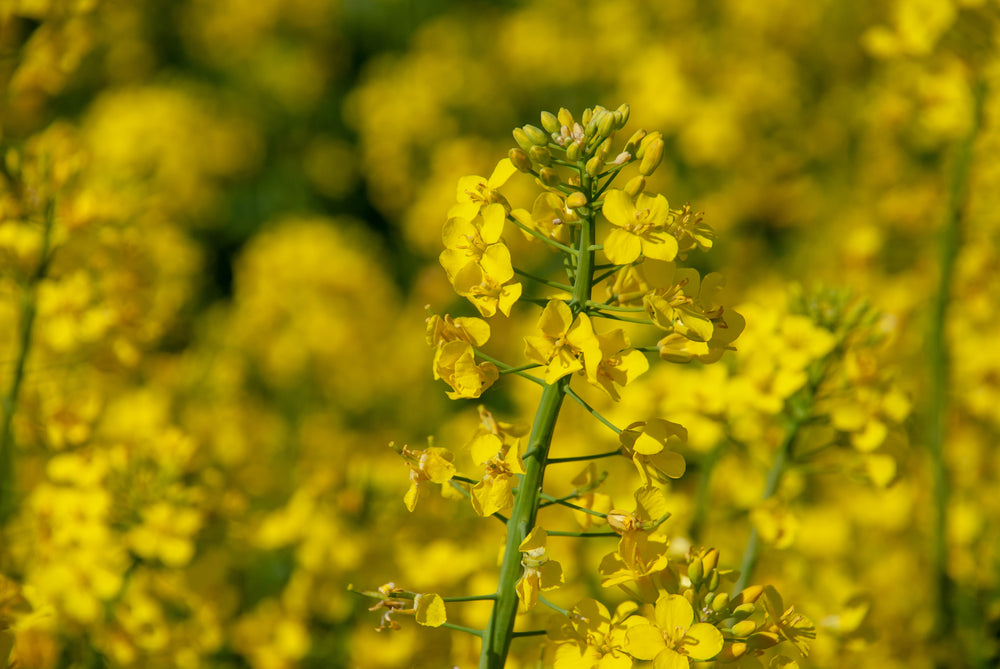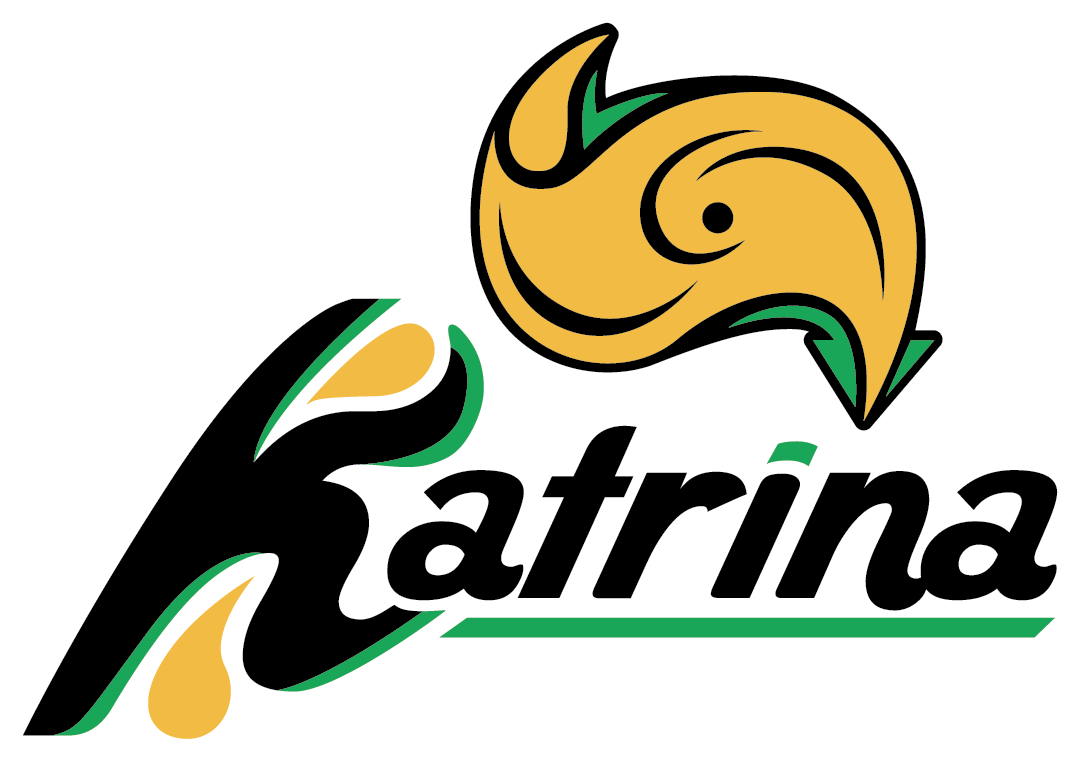What is Canola Oil? Everything You Need to Know
Canola oil, with its widespread use in kitchens around the world, has earned its place as a staple cooking oil. But what exactly is canola oil, and why has it become a top choice for both professional chefs and food manufacturers?
In this guide, we'll talk about canola oil, from its origins and production process to its versatile uses and benefits.
What Is Canola Oil?
Canola oil is made from a specially bred variety of the rapeseed plant that was developed to be low in erucic acid and glucosinolates, making it safe for consumption. The name "canola" itself is a combination of "Canadian" and "oil" which reflects its origins as an agricultural innovation of Canada.

How Canola Oil Is Produced: Step-by-Step Production Process
Step 1: Seed Extraction
Oil extraction from canola seeds can be achieved through two main methods:
- Solvent Extraction: This is the preferred method for large-scale production as it maximizes oil yield. The seeds are first crushed, then a food-grade solvent like hexane is used to extract any remaining oil after pressing. The solvent is then carefully removed through evaporation to make the oil safe for consumption.
- Expeller Pressing: Alternatively, oil can be extracted using a mechanical process with an expeller press. This method applies pressure to the crushed seeds to release the oil without the use of solvents, retaining more flavour and nutrients.
The leftover seed material from both processes, known as canola meal, is used as a high-protein feed for livestock.
Step 2: Refinement
After extraction, the crude canola oil undergoes refining processes to remove impurities and enhance its quality. These processes may include degumming, neutralization, and deodorization.
Step 3: Winterization (Optional)
In colder climates, canola oil may go through a winterization process to remove waxes that can cause cloudiness or solidification at lower temperatures.
Step 4: Packaging
Culinary Uses
High Heat Cooking: Frying, Sautéing, and Baking
Salad Dressings & Sauces
Related post: Alternatives for Canola Oil: Cooking, Baking, and Other Uses
Benefits of Canola Oil
Heart-Healthy
Canola oil is low in saturated fat and contains a favourable balance of monounsaturated and polyunsaturated fats, making it heart-healthy.
High in Omega-3 Fatty Acids
It contains a good amount of alpha-linolenic acid (ALA), an essential omega-3 fatty acid that contributes to overall health.
Versatile and Neutral Flavour
Canola oil's neutral taste allows it to adapt to various culinary applications without overwhelming the dish's natural flavours.
Cost-Effective
Canola oil is generally affordable, making it an economical choice for professional kitchens and food manufacturers to purchase in bulk.
Non-GMO and Organic Canola Oil Options
For those seeking natural and unaltered ingredients, non-GMO and organic canola oil varieties are also available. Non-GMO canola oil is made from canola plants that have been carefully cultivated to be free of genetically modified organisms (GMOs). This designation ensures that the canola plants used in oil production have not undergone genetic modification to introduce specific traits.
Organic canola oil is a type of canola oil sourced from organically grown canola plants. The term "organic" signifies that the cultivation of these plants adheres to strict organic farming practices. This means there's no synthetic pesticides, herbicides, or genetically modified organisms (GMOs) involved in the whole process.
Related post: Organic Canola Oil vs. Regular Canola Oil
Conclusion
Canola oil is a versatile and reliable choice for a wide range of food products, with options like non-GMO, organic, and high-oleic canola oil to suit every requirement. Its heart-healthy profile, neutral flavour, and cost-effectiveness make it an indispensable ingredient for both home cooks and food manufacturers.
Contact us today or request a quote to learn more about our bulk canola oil solutions and how we can support your business.

